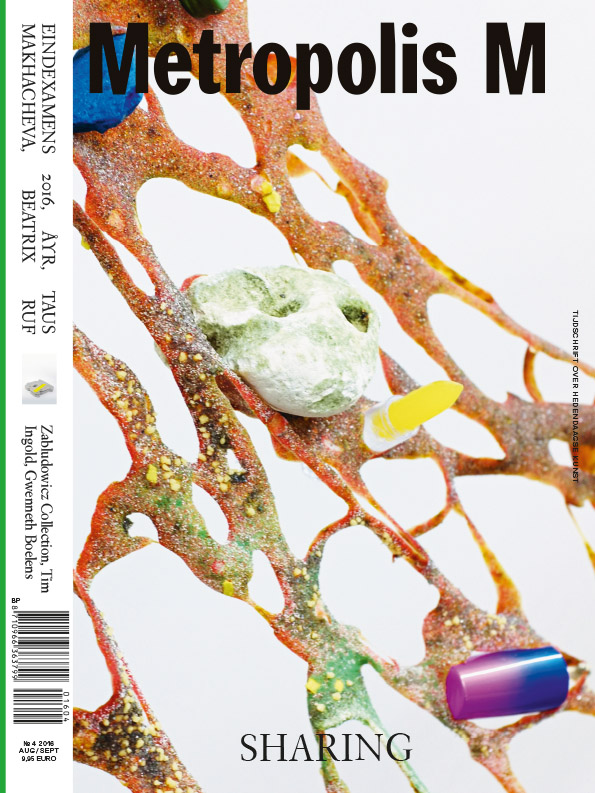Semiotics of a coup
During the final stages of the impeachment process against Brazil’s President Dilma Rousseff, my friend Júlia sent me a photo that captures the twilight of Brazilian politics. The content line in her email read ‘semiotica do golpe’. Let us take her up on her proposal and consider the semiotics of a coup d’état.
On the strange photo, taken at night in the glare of street lamps and after most of the manifestantes have gone home for the night, anti-Dilma activists have dressed up São Paulo’s central boulevard Avenida Paulista for a sinister carnival. On the background of a concrete office tower’s windowless facade stands an inflatable Dilma Rousseff that must be eight or ten metres tall. Her face is covered with a bandit’s half mask and adorned with bands across her chest reading ‘impeachment’ and ‘tschau, querida!’ (‘ciao baby’) – the sexist salute with which many members of parliament accompanied their vote in favour of her impeachment. In the background looms another Gargantuan inflatable, this one bizarrely representing a mortadella sausage. According to its opponents the Rousseff administration came to power because it bought the votes of the poor for sausage (mortadella, not even ham). If anything, the dream-like scene with its balloon caricatures are symptomatic of multiple crises of representation. Not only mistrust of government and the political class, but also of how citizens can imagine their role in society, and what life they feel they can justify to imagine for themselves. As Suely Rolnik observes, it is a battle with the aim to annihilate the imaginary of the left.
The two colossal props give the car-free Avenida Paulista an air of festive idiocy. Between them, on a lamp post, hangs a light box featuring a poster of a campaign that celebrates the Brazilian heroes of samba and bossa nova; this particular one with a photo of Chico Buarque and quoting his song Apesar de Você (amanhã há de ser outro dia). Its message – ‘in spite of you there will be a another day tomorrow’ – was not lost on anyone at the time of the dictatorship when the song was written. Nor is it lost on anyone today, apparently, as Buarque’s face has been used for target practice with paint bombs.
As is well known Dilma Rousseff was suspended on a charge of foul play with the state budget. In a coup-like move, the ex-VP Michel Temer – an exemplary middleman of bottomless opacity – took her place. Not satisfied with mobilizing only the mortadellas of the right wing’s political imagination, he installed a white, all-male cabinet to rule the country. Had he still been alive, the São Paulo-born Swedish artist Öyvind Fahlström might have portrayed Temer’s line-up as ‘fat men of Latin America’; Fahlström’s archetype for the continent’s un-coloured, moneyed, male, Christian elites. Quick to propose sweeping reforms and new legislation in the face of the usual infernal alternatives – recession, inflation, economic downturn – the new un-elected government felt fully empowered.
The Temer administration’s tightening reactionary grip on the country, however, was accompanied by increasing confusion, even farce. Daily and weekly, new episodes of Brazil’s political drama unfolded spasmodically: in front of rolling cameras ex-president Lula was hauled off to questioning on a corruption charge, then made a minister, then had his post rescinded. Rousseff’s impeachment was made official, next thing the impeachment was annulled, and finally the annulment was annulled. The Temer administration dissolved the ministry of culture, then resurrected it again. The minister of transparency and anti-corruption was forced out of office because he turned out to be corrupt. As Lava Jato investigators continue to play whack-a-mole with bent politicians, paranoid speculations have it that Dilma herself masterminded the entire process, her own impeachment and all. When this text has been printed, the magmatic terrain of Brazilian politics will have changed many times over.
With the scene on Avenida Paulista in mind, you can say that it is not a question of showing how messed up and crazy things are. The challenge is to reclaim the delirium as a cultural condition. Per aesthetic tradition the Other-directed aspects of Brazilian culture understand this well through its anthropophagic array of formats for dealing with radical semiotic, perceptual and cognitive displacement. Hélio Oiticica’s attempts at irritating a reality whose appearances already proliferate freely are exemplary; Delirium Ambulatorium was one of his titles for this. Many people have referred to Glauber Rocha’s classic piece of independent cinema from 1967, Terra Em Transe, (Land in a Trance), an operatic dramatization of populism and its carnevalistic re-signification of political arenas. At the moment Brazil is not just like something out of this film, they say: it is Land in a Trance in a trance.
In a very Brazilian fashion, also a song came to characterise the situation, namely Renato Russo’s Que País é Este? (‘what country is this?’, 1978) – recorded as a hit by the group Legião Urbana in 1987. Under the pressure of a hypermobile global capitalism that partakes in the fundamental rewriting of governmental scripts in national elections everywhere, however, this is an apposite question not only for Brazil, whatever the specific nature of its problems may be. The question you want to ask is: which country can recognise its democratic identity anymore? The Brazilian case is maybe just the clearest expression so far of a global telenovelafication of politics.
Lars Bang Larsen



















